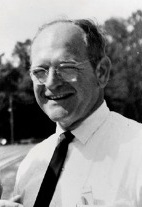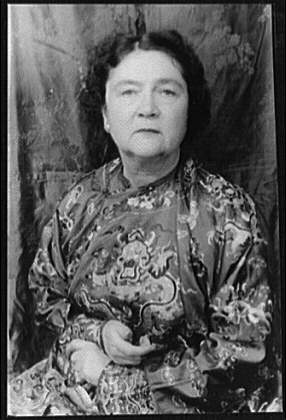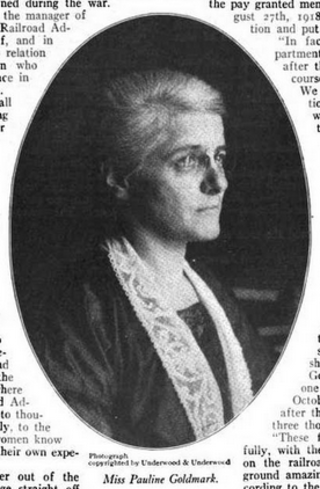Related Research Articles

James Robert Cade was an American physician, university professor, research scientist and inventor. Cade, a native of Texas.He earned his bachelor and medical degrees at the University of Texas, and became a professor of medicine and nephrology at the University of Florida. Although Cade engaged in many areas of medical research, he is most widely remembered as the leader of the research team that created the sports drink Gatorade. Gatorade would have significant medical applications for treating dehydration in patients, and has generated over $150 million in royalties for the university.

Marjorie Kinnan Rawlings was an American writer who lived in rural Florida and wrote novels with rural themes and settings. Her best known work, The Yearling, about a boy who adopts an orphaned fawn, won a Pulitzer Prize for fiction in 1939 and was later made into a movie of the same name. The book was written before the concept of young adult fiction arose, but is now commonly included in teen-reading lists.
Gloria Jahoda was an American author of fiction and non-fiction, including literature for young readers. She is best known for her book about the Hillsborough River, River of the Golden Ibis and her collection of essays The Other Florida about parts of north-central Florida that had largely been neglected up until the 1960s, or at least not written about by historians.
Marie Weaver is an American artist who specializes in ceramic sculpture, printmaking, book arts, and graphic design. Weaver earned a B. A. from the University of Vermont and a Master of Fine Arts degree from Syracuse University. Weaver lives and works in Philadelphia, Pennsylvania. Weaver's career began as an apprentice to Vermont printmaker Sabra Field and evolved into graphic design. From 1990 through 2002 she was head of the graphic design program in the Department of Art and Art History at The University of Alabama at Birmingham. In 2003, Weaver returned full-time to the practice of fine art. She is married to Stephen Harvey, a professor at the University of Pennsylvania.
Robert Strassburg was a leading American conductor, composer, musicologist and music educator of the twentieth century. His studies in music were completed under the supervision of such leading composers as Igor Stravinsky, Walter Piston and Paul Hindemith, with whom he studied at Tanglewood. His formal academic studies were completed at the New England Conservatory of Music and Harvard University, where he obtained a fellowship in composition. He also completed a doctorate in Fine Arts at the University of Judaism in Los Angeles. As a musicologist, Dr. Strassburg is regarded as a leading authority on the compositions of the composer Ernest Bloch.

Mary Ward Hicks was an American psychologist specializing in family therapy, and a professor emerita at Florida State University.

Hardrada Harold Hume was a Canadian-born American university professor, administrator and horticulturalist. Hume was a native of Ontario, and earned bachelor's and master's degrees before embarking on a career as a research botanist, horticulturalist and professor. After working as an academic administrator, Hume later served as the interim president of the University of Florida, serving during September 1947.
Christine Grant was an American athlete, coach, administrator, and advocate for women's college athletics. Dr. Grant served as the athletic director at the University of Iowa from 1973 until 2000. She was inducted into the University of Iowa Athletics Hall of Fame in 2006. Grant was also inducted into the Women's Basketball Hall of Fame in 2017.
Maurita Murphy Mead is an American clarinetist and music professor, the former professor of clarinet at the University of Iowa. Mead has been secretary of the International Clarinet Association.
Margaret Naumann Keyes was an American academic and heritage preserver. She was a professor of Home Economics at the University of Iowa. She is also a nationally recognized leader in the field of heritage conservation, best known for her work to preserve the Iowa Old Capitol Building.
Edith Borroff was an American musicologist and composer. Her compositions include over 60 commissioned works, including pieces for the stage; for her primary instrument—the organ; choral, vocal, and orchestral music; and several critical editions of works by previous composers such as Jubilate by J.-J. Cassanéa de Mondonville. She also wrote at least 7 books, including the textbook Music in Europe and the United States: a History, as well as various peer-reviewed articles and publications.
Mimi Ryan is a former American college golf coach. Ryan was the founder and long-time head coach of the Florida Gators women's golf program at the University of Florida. She is best known for leading the Florida Gators women's golfers to two back-to-back National Collegiate Athletic Association (NCAA) national tournament championships.

The Samuel Proctor Oral History Program (SPOHP) is the official oral history program at the University of Florida. With over 6,500 interviews and more than 150,000 pages of transcribed material, it is one of the premier oral history programs in the United States. SPOHP's mission is "to gather, preserve, and promote living histories of individuals from all walks of life." The program involves staff, undergraduate and graduate students, and community volunteers in its operation.
Lulu Merle Johnson was an American historian and university administrator. She was the second African-American woman to earn a PhD in history in the United States, and the first to do so in the state of Iowa. P. G. Dagbovie has described Johnson as being part of the "first distinguishable coterie of formally trained black women historians" in the U.S. Johnson County, Iowa, is named in honor of her, officially since September 2020.
Lois Hattery Tiffany (1924–2009) was a mycologist who taught for over 50 years at Iowa State University (ISU) and was known as "Iowa's mushroom lady". She won a number of awards, including becoming the first recipient of both the Mycological Society of America's Weston Award and the Iowa Governor’s Medal for Science Teaching. She published on many different aspects of fungal life, but her special area of research was Iowa's prairie fungi.

Pauline Dorothea Goldmark was an American social reformer, focused on equal pay and the health aspects of women's work.

Ruth Hammack Alexander was an American activist for women in collegiate sports. She established the "Lady Gator Athletic" program at the University of Florida to allow women to participate in intercollegiate athletics for the first time.
Frances Cabaniss Roberts was an American historian. She was a founding member of the University of Alabama in Huntsville who was posthumously inducted into the Alabama Women's Hall of Fame.
Miriam DeCosta-Willis was an American educator, writer, and civil rights activist. The first African-American faculty member at Memphis State University, having previously been denied admission to the school as a graduate student due to her race, she spent her career as a professor of Romance languages and African-American studies at a variety of colleges in Memphis, Tennessee, and the Washington, D.C., area. She published more than a dozen books throughout her career, largely dealing with Afro-Latino literature and Black Memphis history.
Mildred Elizabeth Thomson Souers was an American composer who wrote music for ballets and ballet studios, as well as for chamber ensembles, piano, and voice.
References
- ↑ Musser Public Library - Birth, Marriage, and Death Index
- ↑ University of Florida Digital Collections - The Choral Music of Ernst Toch
- ↑ "Google news archive, the Gainesville Sun". Gainesville Sun. March 15, 2002. Retrieved January 14, 2010.
- ↑ "About Miriam Zach". The Margaret Zach International Women Composers Library. Archived from the original on December 5, 2008. Retrieved January 14, 2010.
- ↑ "Miriam Zach". Iowa State University. Retrieved April 14, 2017.